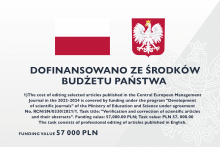Purpose: Using congruity theory, triangular theory of love, gender schema theory, and generational cohort theory, this study aimed to examine the relationships between congruity types and consumers’ service brand passion, along with the moderation effect of gender (i.e. male vs. female customers) and age (i.e. young vs. older customers) in these relationships.
Design/methodology/approach: A total of N=252 valid responses were collected from the customers of service brands (e.g. bus riders), and the theoretical model was tested using exploratory factor analysis (EFA), structural equation modeling (SEM), and moderation analysis techniques.
Findings: After assessing four types of congruity, we discovered that the influence of brand use image congruity had the greatest impact on service brand passion, followed by brand user image congruity, and actual self-congruity. Our moderation variable of gender revealed that the effect of actual self-congruity is more essential in building service brand passion among male than female customers, whereas the effect of ideal self-congruity is more important among female than male customers. Similarly, the effect of ideal self-congruity is more essential for boosting service brand passion among young than older customers, while brand use image congruity better promotes service brand passion among older but not young customers.
Implications: This study offers strategies for boosting service brand passion among male (vs. female) and young (vs. older) customers in emerging markets.
Originality: This is the first study to look into the effects of congruity types on service brand passion, and it has given marketers a framework for targeting customers based on their gender and age.





